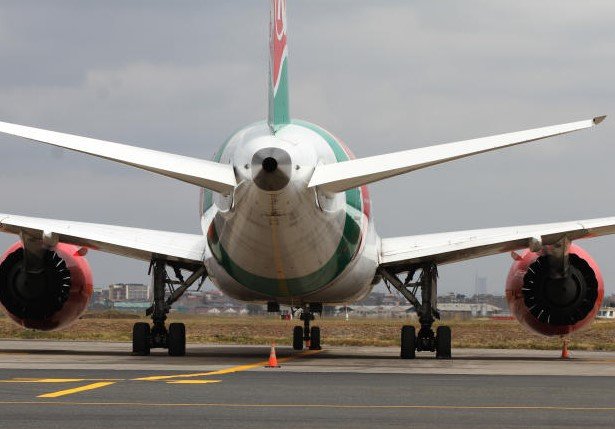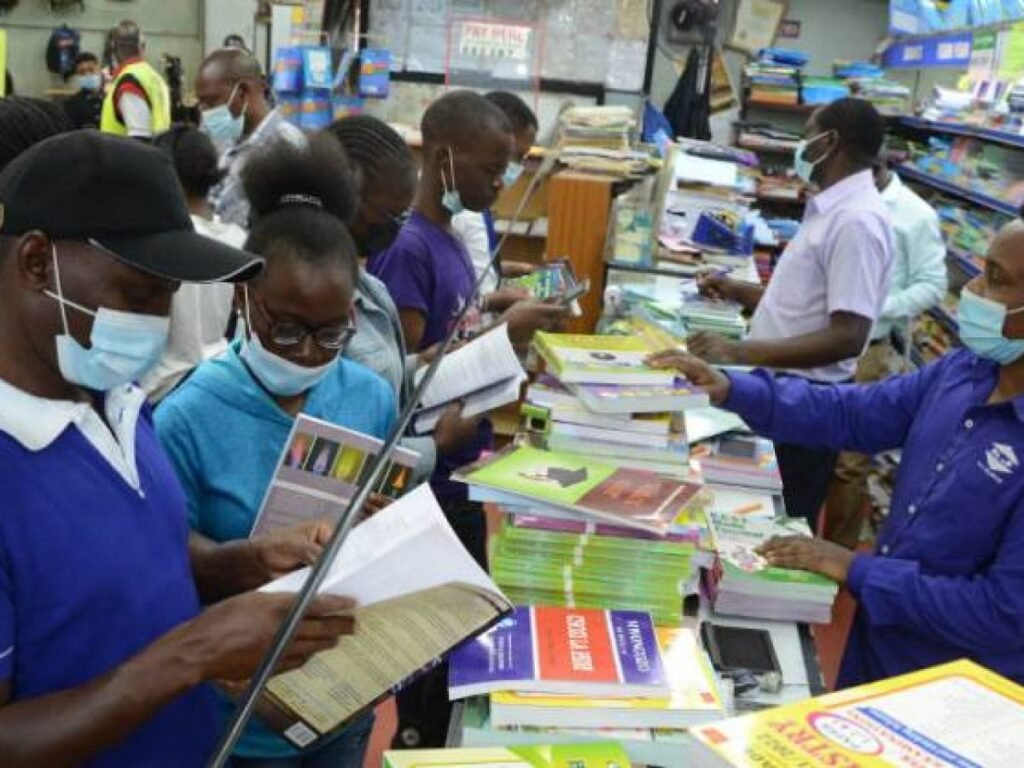General News
Gov’t Roll Out Efforts To Evacuate 12 Kenyans From Afghanistan Underway

Three out of 12 Kenyans stuck in Afghanistan have been evacuated, the Ministry of Foreign Affairs says.
One arrived in the country on Wednesday, while two others are expected to land on Thursday evening, August 19.
The Kenyan Government said the 12 citizens were working for international organisations in the foreign nation.
“Through diplomatic channels, the Ministry of Foreign Affairs wrote to the concerned organisations with a clear request to evacuate stranded Kenyans as a matter of urgency,” the ministry said.
Kenya has no diplomatic relations nor accreditation in Afghanistan, but has reached out to its allies closer to the Middle-East nation, to gather more information on any of its citizens stranded therein.
“The Ministry of Foreign Affairs through the Kenya High Commission in Islamabad, Pakistan which is the nearest Mission to Afghanistan has reached out to our allies to get information of any stranded Kenyans and prospects of evacuation,” it added.
Earlier in the week, Foreign Affairs Principal Secretary Amb. Macharia Kamau told local media that Kenyans working in Afghanistan will be evacuated by their employers.
“The country has been unstable for a long while, and we do not expect Kenyans to have gone to this country,” he said in an interview with Daily Nation.
The Taliban took control of Afghanistan, capturing major cities and occupying the presidential palace. President Ashraf Ghani fled the country as the insurgents entered Kabul virtually unopposed, saying he wanted to avoid bloodshed.
Thousands are still fleeing the capital Kabul as several Western nations continue to evacuate their citizens.
General News
IMF Criticizes Kenya’s Fuel Subsidy Re-Introduction, Warns of Budget Distortion

The International Monetary Fund (IMF) has criticized Kenya for re-implementing the fuel subsidy scheme, expressing concerns that the lack of funds to pay oil marketers could distort the budget.
Despite a previous commitment by President William Ruto in 2022 not to subsidize pump prices, the government reintroduced the subsidy, preventing petrol and diesel prices from reaching higher levels in October 2023.
The IMF argues that the subsidy was applied without available funds, as the Treasury has yet to pay oil marketers at least Ksh9 billion ($55.6 million) accumulated from the previous year. President Ruto’s decision to reinstate subsidies goes against conditions set by the IMF for accessing loans.
Petrol and diesel prices, which were Ksh217.36 ($1.34) and Ksh205.47 ($1.27) respectively in Nairobi in October 2023, remained lower than the potential Ksh220.43 ($1.36) and Ksh217.11 ($1.34) due to the subsidy. However, the IMF disapproves of the decision, emphasizing that the removal of the subsidy was a key condition for a 38-month budget support scheme.
The IMF criticizes the prolonged process of forming a taskforce and delays in implementing decisions regarding fuel pricing.
The removal of the subsidy in May of the previous year led to record-high pump prices, crossing the Ksh200-mark later in the year due to a combination of subsidy removal and a VAT increase to 16 percent.
Kenya’s administration, faced with rising fuel costs, chose to reinstate the subsidy, prompting the IMF to raise alarms over the lack of budgeted funds and potential distortions in the country’s financial plans.
The ongoing disagreement highlights the challenges and consequences associated with balancing domestic economic policies and meeting international financial commitments
General News
Parents in Meru County Turn to Second-Hand Books Amid Economic Hardships

As the back-to-school rush season unfolds in Meru County, a growing number of parents are making a strategic choice to purchase second-hand books for their children.
This decision stems from the challenging economic conditions that have prompted families to seek ways to cut costs.
Among these parents is Ms. Prisca Gakii, who revealed that opting for second-hand books allows her to save money, which can then be allocated towards essential expenses like school fees.
She highlighted a practical advantage for Form-One students, emphasizing that using older books can protect them from potential theft, as new books often become targets for less scrupulous classmates.

Ms. Gakii pointed out a notable price difference, citing an example of a new Oxford dictionary priced at almost Sh1,900, compared to a used one available for Sh1400.
She justified her preference for the older but more affordable option, emphasizing that they contain the same content.
Janet Wamuyu, a second-hand books trader, shed light on the lucrative nature of their business during the opening of the first term, which coincides with the peak season.
As learners transition to new grades or classes, there is a heightened demand for various books, including dictionaries, Kamusi, and Golden Bells.

Wamuyu explained that this period, especially when Form-One students are joining school, facilitates easy acquisition of books for new stock.
The trading process involves exchanging books for the next grade or class at a lower rate, providing an economical alternative for parents instead of purchasing an entirely new set of books.
She further noted that their source of new stock comes from parents whose children have completed their studies and no longer require the books.
Despite the success during the peak season, Wamuyu acknowledged the challenges faced during other times of the year when only a few revision books are in demand, highlighting the cyclical nature of the business in Meru County.























